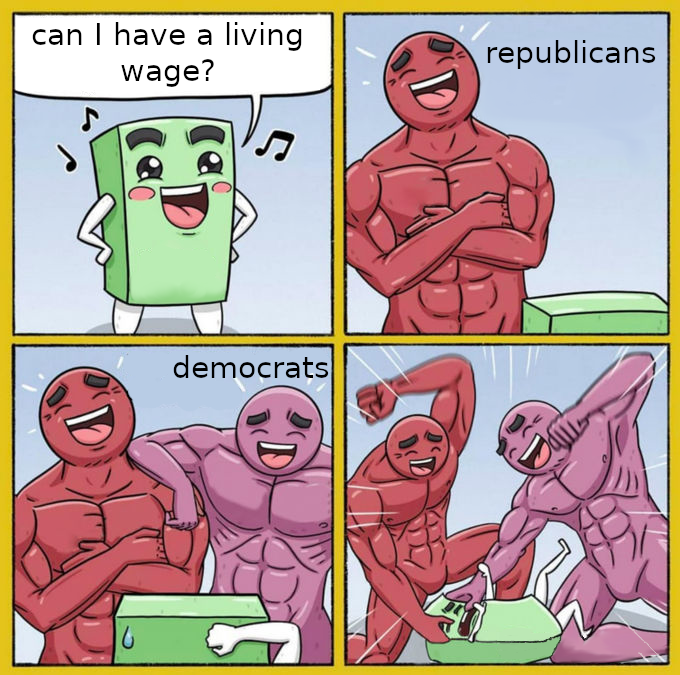this post was submitted on 23 Feb 2024
707 points (77.7% liked)
Memes
45885 readers
930 users here now
Rules:
- Be civil and nice.
- Try not to excessively repost, as a rule of thumb, wait at least 2 months to do it if you have to.
founded 5 years ago
MODERATORS
you are viewing a single comment's thread
view the rest of the comments
view the rest of the comments

In the German system (or any other multiparty system), voters can effectively punish a political party without wasting their vote, because there is a lot of overlap between the parties.
If you don't like the current coalition but are a left-leaning person, you can vote for Die Linke. You might not agree with all of their positions but you at least can agree with some of them. Even if that is not palatable if you previously voted SDP you can switch your vote to Green or vice versa to punish the specific officeholders representing your constituency. If you voted for the FDP last time, maybe try Union next time. There are many ways to do this, and overall I think it makes the parties themselves more accountable to the voters because voters defecting their party list votes can drastically change the makeup of the Bundestag.
Similarly, right-leaning UK voters are punishing the Conservative Party by threatening to or actually voting for Reform candidates. Scots can punish the SNP by voting Labour.
You can't do this in the US. In the USA, the only recourse the voters have over the parties is to vote out undesirable candidates through primary elections so that the party cannot nominate them. This works alright, sometimes, but it is not an effective way to punish party leadership for bad decisions, and many primaries are uncompetitive anyway.
I see the more severe problem in the two party system, that is enforced by the weird voting process: https://www.history.com/news/two-party-system-american-politics